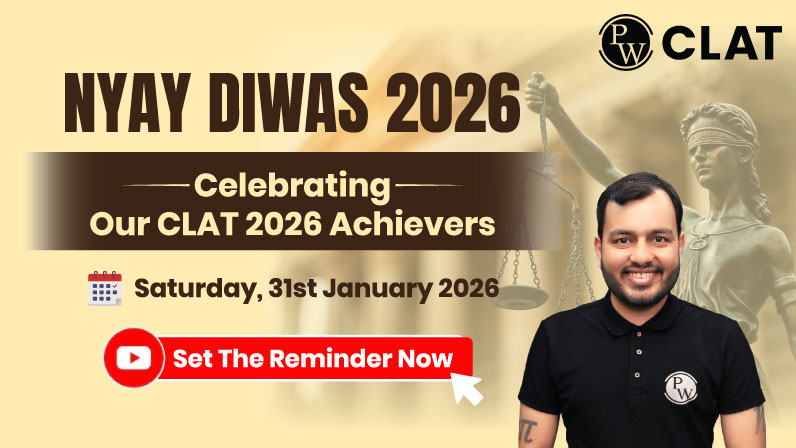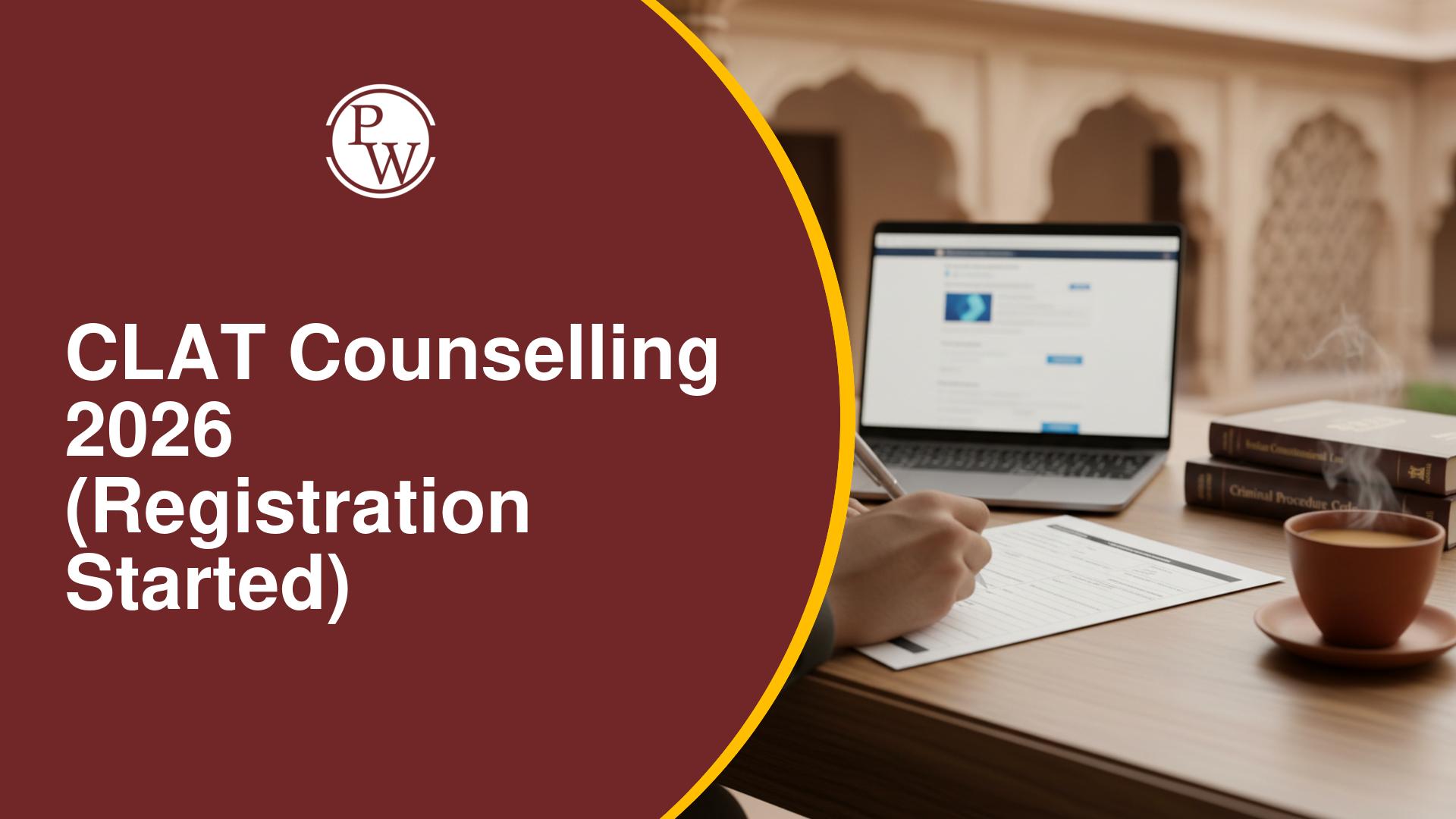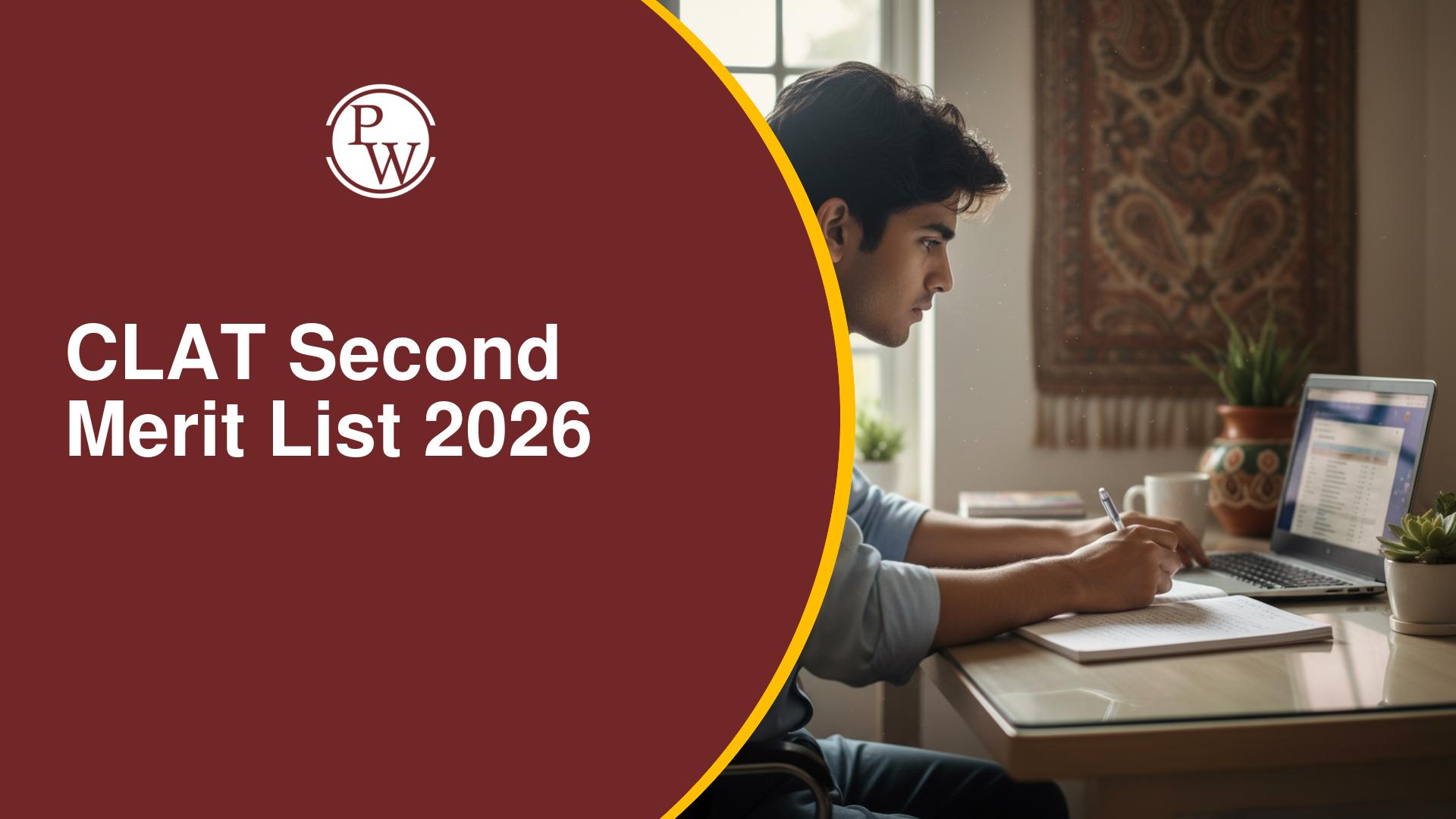
How to Start GK Preparation for CLAT 2026: The Common Law Admission Test (CLAT) 2026 is a national entrance exam for students who wish to pursue law. The CLAT UG syllabus includes five important subjects: English language, current affairs (including general knowledge), legal reasoning, logical reasoning, and quantitative techniques. Out of these, the Current Affairs and General Knowledge section holds significant weight, with 28-32 questions making up about 25% of the total exam.
For students preparing for CLAT 2026 , how to start GK preparation for CLAT 2026 is a key concern. To perform well in this section, candidates should read newspapers, watch news, and practice GK quizzes daily. Staying up-to-date on current events and revising important general knowledge topics is crucial.
Candidates aiming for a high score in CLAT 2026 should dedicate time to improving their GK knowledge, as it plays a vital role in securing a good overall score. Here, we will discuss in detail how to start GK preparation for CLAT 2026.
Checkout Law Books from PW Store
CLAT 2026 Exam Overview
CLAT 2025 is an important entrance exam for admission to law programs. It evaluates candidates' comprehension, reasoning, and analytical skills across five key subjects. The exam is conducted by the Consortium of National Law Universities and is held once a year in an offline mode. The table below provides an overview of CLAT UG 2026:
| CLAT 2026 Exam Overview | |
| Aspects | Details |
| Full Form | CLAT (Common Law Admission Test) |
| Test Conducting Body | The Consortium of National Law Universities |
| Test Frequency | Once a year |
| Test Mode | Offline (Pen-and-paper based) |
| Test Duration | 2 hours (120 minutes) |
| Total Marks | 120 marks |
| Total Questions | 120 multiple-choice questions |
| Marks per Question | 1 mark per question |
| Negative Marking | 0.25 mark deduction for each incorrect answer |
| Subject Areas | English Language, Current Affairs, Legal Reasoning, Logical Reasoning, Quantitative Techniques |
| Official Website | consortiumofnlus.ac.in |
How to Start GK Preparation for CLAT 2026? Strategy to Master in GK
The General Knowledge (GK) and Current Affairs section is a key part of the CLAT 2026 exam, contributing around 25% to your total score. This section tests your knowledge of important events across national and international news, culture, arts, history, and current affairs. To do well in this section, you need a clear, consistent approach to your preparation. Here are some simple steps to start GK preparation for CLAT 2026:
1. Develop a Consistent Reading Habit
Reading regularly is the first and most important step to build a strong foundation for the GK section. Begin your GK preparation by reading reputable newspapers regularly. Focus on the news related to politics, economics, international events, and important national issues. Pay attention to editorials, as they offer deeper insights into current matters, helping you answer questions that require analysis.
2. Maintain a Dedicated GK Notebook
An important part of effective learning is organizing information. Keep a separate notebook for your general knowledge notes. In this notebook, write down key events, dates, important people, and relevant facts. Organize your notes into categories such as politics, economy, international relations, and science. This will help you better understand the material and provide a quick reference for revision as the exam gets closer.
3. Focus on Static GK and Strengthen Your Basics
Along with current affairs, static GK is also important for CLAT. This includes topics like Indian history, geography, and the constitution. Spend some time each day studying these subjects using standard resources like Lucent’s General Knowledge or NCERT books. A good understanding of static GK will help you connect current events to historical and geographical contexts, making it easier to answer related questions.
4. Use Monthly Current Affairs Magazines
In addition to daily reading, monthly current affairs magazines are helpful. They summarize important events from the past month, helping you catch up on any key developments you might have missed. These magazines provide a structured approach to reviewing major events and are useful for exam preparation.
5. Use of Online Resources and Take Mock Tests
Many online resources are available to keep you informed about current events. Educational apps and websites offer regular updates, and quizzes can be used to test knowledge. Mock tests are essential for CLAT exam preparation as they simulate the actual exam environment and help assess your readiness.
Practicing with previous years’ question papers will also help you understand the exam pattern, manage time effectively, and get familiar with the types of questions. PW store provides previous year question papers and study materials, offering valuable practice and guidance.
6. Focus on Key Topics
Some topics in General Knowledge (GK) are asked more often in exams than others. Focus on the following areas to strengthen your preparation:
- Indian Polity : Constitution, political system, important amendments, and political parties.
- Indian History : Key events, movements, and historical figures.
- Indian Geography : Physical features, climate, rivers, and major cities.
- Economics : Key policies, budget, GDP, and trade.
- Science & Technology : Major inventions and technological advancements.
- International Relations : Important global events, treaties, and international organizations.
By concentrating on these topics, answering most questions in the GK section will become easier.
7. Revise Regularly
Regular revision is essential for retaining information. Make it a habit to review notes frequently. Use flashcards for quick revision and aim to revise at least once a week. Joining study groups or online forums to discuss current events can also be beneficial. This helps in gaining different perspectives and improving thinking ability skills.
By following these simple steps, building a strong foundation in the GK section for CLAT 2026 will be easier. Remember, consistent preparation is key. Stick to your study plan, stay disciplined, and ask for help. The more effort invested now, the more confident you'll feel on exam day. Best of luck with your preparation!
Why is GK Preparation Important for CLAT 2026?
Preparation for General Knowledge (GK) is important for CLAT 2026 because the Current Affairs and General Knowledge section accounts for about 25% of the total exam. This section consists of passages, each up to 450 words, from news articles, journalistic sources, and other non-fiction writings.
CLAT GK section questions following these passages assess your awareness of current events, including significant developments from India and around the world, arts and culture, international relations, and key historical events.
With 28-32 questions out of a total of 120, mastering this section is essential for achieving a high score. GK preparation improves your overall score and ability to perform well on the CLAT.
How to Start GK Preparation For CLAT 2026 FAQs
How to prepare for CLAT after 12th?
How to prepare for CLAT 2026?
How to start GK for CLAT?
How many months of GK is required for CLAT?
How to Prepare GK for CLAT 2026?










